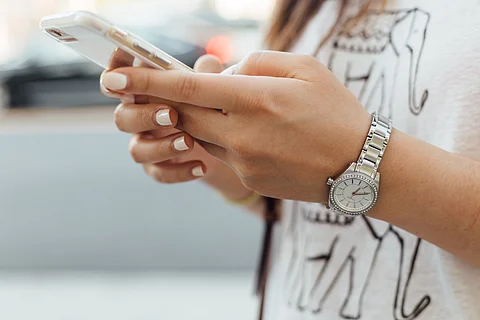

Indian women interact across a variety of spaces on the internet, from social media platforms to dating apps. Many make close friends with and date people they meet online. But they’ve also had to avoid, block, and warn friends about the harmful people they’ve come across along the way.
Staying protected when you’re on the internet is the need of the hour, and brands like Bumble are stepping up to make it their priority. For example, their ‘Stand for Safety’ campaign - in which they partnered with the non-profit organisation Centre for Social Research and Nyaaya to release a one-of-a-kind safety handbook to empower their community to recognise and combat online hate, bullying and discrimination.
With the growing wave of people going online for socialising, romance, and everything in between, we need to get educated on how to stay safe online.

Aarti, 34: “Vet your matches before revealing personal info.”
When we asked Aarti, who lives in Chennai and has been actively using dating apps for the last three years, she said that her most important tip is to never reveal private information until you’re sure - this includes your phone number, the locality you live in, and even your full name.
She advises her friends to use the features that dating apps provide to vet their matches. On Bumble, for example, the Voice Call and Video Chat features help people to get to know each other better without sharing personal information like phone numbers or email addresses before you meet in-person, allowing for a new level of familiarity.
Pavithra, 37: “Use the Block & Report button when you feel uncomfortable.”
Pavithra, who lives in Gurgaon, says she taught herself to stop talking to people as soon as they make her uncomfortable. She makes liberal use of the Block & Report feature when people display signs of harassment or bullying.
Ambika, 29: “Notice red flags, like zero respect for consent.”
Ambika, who lives in Kolkata and is currently enjoying casual dating, says her biggest red flag is men who don’t seem to understand the word “no”. She explains, “It starts small, like pushing to meet up before I’m comfortable or insisting I stay up to text with them longer. Then one day, without asking me if I want to see it… bam! He sent me a lewd image of himself.”
“Consent is of utmost importance, and anybody who doesn’t get that, doesn’t get very far with me,” Ambika says. What helps her is features like Bumble’s Private Detector - it uses AI to automatically detect and blur nude images. The recipient can then choose to view, delete, or report the image.
At the end of the day, what all these women agree on is that awareness and knowledge is power.
To equip yourself with crucial information on what online hate or abuse looks like and how to safeguard yourself, check out the Bumble India safety handbook, created in partnership with Centre for Social Research and Nyaaya - an open-access, digital resource that provides simple, reliable and accessible legal information in order to solve day-to-day legal problems. The handbook provides simple, actionable information to educate people about their digital rights and how to exercise them when faced with online hate and discrimination.
This article has been published in association with Bumble India.
Main image: Photo by Paul Hanaoka on Unsplash